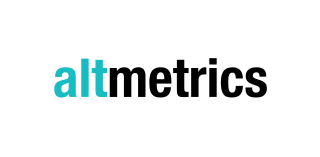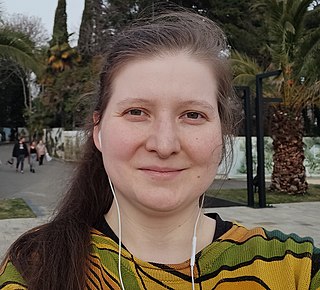
The reference desk or information desk of a library is a public service counter where professional librarians provide library users with direction to library materials, advice on library collections and services, and expertise on multiple kinds of information from multiple sources.

PLOS is a nonprofit publisher of open-access journals in science, technology, and medicine and other scientific literature, under an open-content license. It was founded in 2000 and launched its first journal, PLOS Biology, in October 2003.
Interlibrary loan is a service that enables patrons of one library to borrow physical materials and receive electronic documents that are held by another library. The service expands library patrons' access to resources beyond their local library's holdings, serving as "an integral element of collection development" for libraries.

JSTOR is a digital library of academic journals, books, and primary sources founded in 1994. Originally containing digitized back issues of academic journals, it now encompasses books and other primary sources as well as current issues of journals in the humanities and social sciences. It provides full-text searches of almost 2,000 journals. Most access is by subscription but some of the site is public domain, and open access content is available free of charge.

Open access (OA) is a set of principles and a range of practices through which research outputs are distributed online, free of access charges or other barriers. With open access strictly defined, or libre open access, barriers to copying or reuse are also reduced or removed by applying an open license for copyright.

Google Scholar is a freely accessible web search engine that indexes the full text or metadata of scholarly literature across an array of publishing formats and disciplines. Released in beta in November 2004, the Google Scholar index includes peer-reviewed online academic journals and books, conference papers, theses and dissertations, preprints, abstracts, technical reports, and other scholarly literature, including court opinions and patents.
Open access citation advantage (OACA), sometimes known as FUTON bias, is a type of bias whereby scholars tend to cite academic journals with open access (OA)—that is, journals that make their full text available on the Internet without charge —in preference to toll-access publications. The concept was introduced, under the FUTON bias name, by UK medical researcher Reinhard Wentz in a letter to The Lancet in 2002.

X, formerly and commonly referred to as Twitter, is a social media website based in the United States. With over 500 million users, it is one of the world's largest social networks. Users can share and post text messages, images, and videos known historically as "tweets". X also includes direct messaging, video and audio calling, bookmarks, lists and communities, and Spaces, a social audio feature. Users can vote on context added by approved users using the Community Notes feature. Although the service is now called X, the primary URL remains twitter.com as of December 2023, with the x.com domain name redirecting to that address.

I Can Has Cheezburger? is a blog-format website featuring videos and image macros. It was created in 2007 by Eric Nakagawa (Cheezburger), from Hawaii, and his friend Kari Unebasami (Tofuburger). The website was one of the most popular Internet sites of its kind receiving as many as 1,500,000 hits per day at its peak in May 2007. ICHC was instrumental in bringing animal-based image macros and lolspeak into mainstream usage and making Internet memes profitable.
Content creation is the act of producing and sharing information or media content for specific audiences, particularly in digital contexts. According to Dictionary.com, content refers to "something that is to be expressed through some medium, as speech, writing or any of various arts" for self-expression, distribution, marketing and/or publication. Content creation encompasses various activities including maintaining and updating web sites, blogging, article writing, photography, videography, online commentary, social media accounts, and editing and distribution of digital media. In a survey conducted by Pew, content creation was defined as "the material people contribute to the online world."

A hashtag is a metadata tag that is prefaced by the hash symbol, #. On social media, hashtags are used on microblogging and photo-sharing services such as X or Tumblr as a form of user-generated tagging that enables cross-referencing of content by topic or theme. For example, a search within Instagram for the hashtag #bluesky returns all posts that have been tagged with that term. After the initial hash symbol, a hashtag may include letters, numerals, or underscores.
Academic journal publishing reform is the advocacy for changes in the way academic journals are created and distributed in the age of the Internet and the advent of electronic publishing. Since the rise of the Internet, people have organized campaigns to change the relationships among and between academic authors, their traditional distributors and their readership. Most of the discussion has centered on taking advantage of benefits offered by the Internet's capacity for widespread distribution of reading material.
The term twitter bomb or tweet bomb refers to posting numerous Tweets with the same hashtags and other similar content, including @messages, from multiple accounts, with the goal of advertising a certain meme, usually by filling people's Tweet feeds with the same message, and making it a "trending topic" on Twitter. This may be done by individual users, fake accounts, or both.

In scholarly and scientific publishing, altmetrics are non-traditional bibliometrics proposed as an alternative or complement to more traditional citation impact metrics, such as impact factor and h-index. The term altmetrics was proposed in 2010, as a generalization of article level metrics, and has its roots in the #altmetrics hashtag. Although altmetrics are often thought of as metrics about articles, they can be applied to people, journals, books, data sets, presentations, videos, source code repositories, web pages, etc.
ResearchGate is a European commercial social networking site for scientists and researchers to share papers, ask and answer questions, and find collaborators. According to a 2014 study by Nature and a 2016 article in Times Higher Education, it is the largest academic social network in terms of active users, although other services have more registered users, and a 2015–2016 survey suggests that almost as many academics have Google Scholar profiles.
OurResearch, formerly known as ImpactStory, is a nonprofit organization that creates and distributes tools and services for libraries, institutions and researchers. The organization follows open practices with their data, code, and governance. OurResearch is funded by the Alfred P. Sloan Foundation, the National Science Foundation, and Arcadia Fund.

Library Genesis (LibGen) is a file-sharing based shadow library website for scholarly journal articles, academic and general-interest books, images, comics, audiobooks, and magazines. The site enables free access to content that is otherwise paywalled or not digitized elsewhere. LibGen describes itself as a "links aggregator", providing a searchable database of items "collected from publicly available public Internet resources" as well as files uploaded "from users".

Sci-Hub is a shadow library website that provides free access to millions of research papers, regardless of copyright, by bypassing publishers' paywalls in various ways. Unlike Library Genesis, it does not provide access to books. Sci-Hub was founded in Kazakhstan by Alexandra Elbakyan in 2011, in response to the high cost of research papers behind paywalls. The site is extensively used worldwide. In September 2019, the site's operator(s) said that it served approximately 400,000 requests per day. In addition to its intensive use, Sci-Hub stands out among other shadow libraries because of its easy use/reliability and because of the enormous size of its collection: a 2021 study estimated, that Sci-Hub provided access to 95% of all scholarly publications with issued DOI numbers, and on 15 July 2022 Sci-Hub reported that its collection comprises 88,343,822 files.

Alexandra Asanovna Elbakyan is a Kazakhstani computer programmer and creator of the website Sci-Hub, which provides free access to research papers without regard for copyright. According to a study published in 2018, Sci-Hub provides access to nearly all scholarly literature.
Shadow libraries are online databases of readily available content that is normally obscured or otherwise not readily accessible. Such content may be inaccessible for a number of reasons, including the use of paywalls, copyright controls, or other barriers to accessibility placed upon the content by its original owners. Shadow libraries usually consist of textual information as in electronic books, but may also include other digital media, including software, music, or films.











